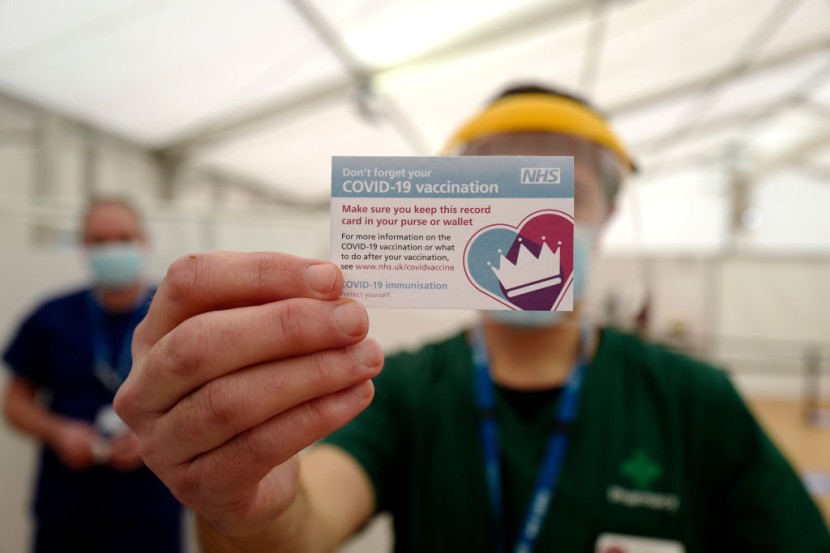
As many people are very excited to share that they have gotten their COVID-19 vaccine already, the Better Business Bureau (BBB) has warned Americans not to post their COVID-19 vaccine cards on social media.
According to the BBB, a non-profit organization whose main goal is to expose fraudulent activity and provide consumers with information, people should avoid posting pictures of their vaccine cards since it may attract scammers who might take advantage of the information on the card.
In a news release, the bureau said vital personal information such as the person's full name, birthday, and where they got the vaccine is seen on the card. Thus it can be used as a source of information for fraud.
The BBB also stated that if a person's social media privacy settings are not high, there is a huge risk that these details can be phished by scammers and be used in unlawful acts.
Aside from getting personal information from the COVID-19 vaccine cards, the BBB said that posting a picture of the card online makes it easier for scammers to make imitation cards that they can sell. This scheme has already become rampant in Great Britain, according to the BBB.
They also noted that the fake COVID-19 vaccine cards could help others bypass vaccine requirements that are needed for school, work, or travel.
The bureau also recommended that people share pictures of their vaccine stickers instead of the COVID-19 vaccine cards. They also suggested that people always check the settings in their social media accounts and know who they give access to view their information.
Read also: Captain Sir Tom Who Raised £33M for NHS, Hospitalized Due to COVID-19
The first images of the vaccination kits and vaccination records were released by the Department of Defense back in December.
According to CNN, Immunization Action Coalition associate director Dr. Kelly Moore said that the simplest way to keep track of COVID-19 immunization is through the COVID-19 vaccine cards. The IAC works hand-in-hand with frontline workers who are administering the shots to the public.
Vaccine clinics are also required to submit reports to each state's immunization registry on what vaccine was administered to a patient. For example, a separate entity could check and know if a patient was given the first dose or second dose of the vaccine.
According to recent reports, the U.S. Centers for Disease Control and Prevention stated that there had been more than 31 million COVID-19 vaccine doses administered throughout the United States.
COVID-19 Vaccine Scams
It has been mentioned that the BBB has already warned people that faking vaccine cards and gaining profit from them has been widespread in the U.K.
The scammers who did these were caught selling the fake COVID-19 vaccine cards on online platforms such as eBay, and even in the video-sharing app, TikTok, Journal and Courier reported via MSN.
The BBB has cautioned that it is only a matter of time before these scams reach the U.S.; thus, they advise people to be very careful of what they post on social media and not openly give free data to fraudsters.
The bureau said that while it understands the public's excitement in sharing their COVID-19 vaccine cards, it is still better to keep the card's picture to themselves also for their protection.








